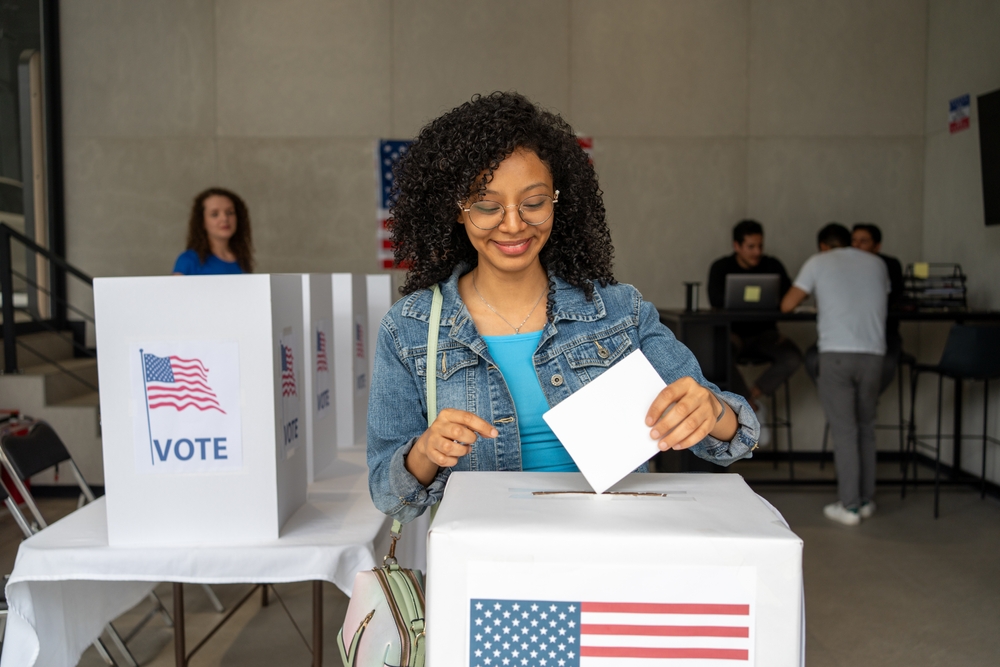In a highly contentious move, Georgia’s state election board voted on Friday to require the hand-counting of ballots cast on Election Day, a decision that could significantly delay the reporting of results in one of the nation’s key battleground states. The 3-2 vote, which was backed by a pro-Trump majority, has ignited opposition from both Democrats and some Republicans who argue that the rule change introduces unnecessary risks into the election process. With the November election looming, concerns about potential delays and errors are mounting.
A Major Shift in Georgia’s Voting Process
Under the new rule, Georgia counties are now required to count ballots manually after polls close, marking a departure from the use of ballot tabulators, which are designed to expedite the counting process. The decision has raised alarm among election officials and voters alike, as hand-counting could lead to significant delays in finalizing results.
Georgia’s Secretary of State Brad Raffensperger, a key Republican figure who opposed the rule, expressed concern over its potential impact. “We’ve spent years working to speed up the voting process and ensure voters get timely results. Now, we’re facing a rule that could take us backward,” Raffensperger said. He was joined in opposition by Attorney General Chris Carr, who also warned that the rule could complicate the election at a time when trust in the system is critical.
Legal Concerns and Administrative Warnings Ignored
The vote to approve hand-counting came despite stern warnings from Georgia’s legal advisors. Senior Assistant Attorney General Elizabeth Young cautioned the board that the rule might exceed the board’s legal authority and conflict with existing election laws. She highlighted the challenges of implementing such a drastic change so close to Election Day, predicting possible chaos as counties scramble to adjust.
Even with these warnings, the board, chaired by John Fervier, moved forward with the decision. Fervier acknowledged the legal concerns during the hearing but voted in favor of the rule, stating, “We understand the risks, but we believe this change is necessary.”
Supporters Argue for Election Integrity; Critics See Risks
Proponents of the hand-counting mandate claim it will boost public confidence in election outcomes, particularly among voters who distrust electronic voting machines. Board member Janelle King, one of the supporters, argued that hand-counting ballots would prevent post-election disputes. “This rule will catch any discrepancies early and ensure the accuracy of the ballot count before questions arise,” she said.
However, election experts and opponents of the rule argue the opposite—that hand-counting could lead to greater confusion, mistakes, and delays. Numerous studies have shown that hand-counting is less accurate than using machines, with a greater likelihood of human error. Last year, a trial of hand-counting in Arizona’s Mohave County revealed that it took up to three minutes to count a single ballot, with frequent mistakes reported by the counters.
While the Georgia rule only mandates counting the total number of ballots rather than individual votes, election officials worry that this could still lead to significant slowdowns, especially in closely contested races.
Election Officials Brace for Logistical Challenges
Local election officials across Georgia are already preparing for the additional burden of hand-counting ballots. Charlotte Sosebee, the elections director for Clarke County, expressed concerns about the logistical hurdles the new rule presents. “This is going to slow us down significantly, and I’m not sure we have the resources or the time to implement it smoothly,” she said.
Sosebee and other election directors are now faced with the challenge of training their staff on hand-counting procedures, a task that wasn’t included in their original election budgets. Local governments may need to allocate more funds to compensate poll workers for the extended hours this new requirement will necessitate.
Broader Election Integrity Concerns in Georgia
This latest rule is part of a broader trend of election changes in Georgia, which has become a flashpoint for debates over voting access and integrity since the 2020 presidential election. In August, the same election board approved a controversial rule allowing county election boards to conduct “reasonable” inquiries before certifying results, a move that critics say could undermine election integrity.
The Democratic National Committee and Georgia Democrats have already filed lawsuits challenging the legality of these changes, arguing that they are designed to sow confusion and reduce trust in the election system.
Former President Donald Trump, who has consistently promoted unsubstantiated claims of widespread election fraud, praised the board members who supported the hand-counting rule. During a recent rally, Trump referred to them as “warriors for transparency,” adding fuel to an already volatile political atmosphere.
A Contentious Path to Election Day
As Georgia gears up for the November election, the decision to mandate hand-counting ballots threatens to escalate an already charged political environment. While supporters argue that the move will increase trust in the voting process, critics warn that it could result in significant delays, errors, and new challenges for election officials. With legal challenges piling up and time running out before Election Day, Georgia finds itself at the center of another contentious voting debate.
The true impact of the hand-counting rule will be revealed when millions of Georgians head to the polls, and the state grapples with the complexities of counting ballots by hand in a high-stakes election.







